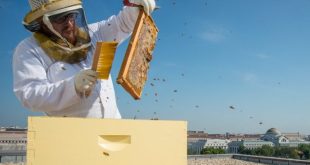
The power of scientists to change the genes of dwelling techniques isn’t solely one of the unbelievable issues to have occurred in science but in addition one of the necessary, as people now have the flexibility to tweak any dwelling system the best way they need. After all, this has led to steady debates in regards to the morality of those practices, and modifying animal genes, particularly people’, has been drastically regulated due to that.
Most genetically modified organisms (GMOs), both crops or animals, are created by utilizing what are known as transgenes, that are genes faraway from a particular species of dwelling factor to a totally totally different species of dwelling factor. As an example, genes which made fishes within the arctic areas of the world survive the acute chilly have been efficiently transmitted into some crops to make them survive harshly chilly areas. Gene coding for human progress issue has additionally been efficiently transferred into rats to extend their sizes. These experimentations readily got here with backlashes, with questions being requested in regards to the morality and longevity of such modifications.
However, there’s way more freedom to observe genetic modification in terms of crops and crops and meals than in animals and many countries have aggressively pursued these areas in order to beat, drought, famine, hunger and malnutrition. The researches which have gone into areas akin to meals improvisation by genetic modifications are unprecedented, with makes an attempt being made to present some qualities to crops with the intention to make them higher for human consumptions. As an example, the flexibility so as to add and improve the nutritive values of some crops, which had hitherto lacked these vitamins, has now gone an extended strategy to cut back malnutrition around the globe.
Nevertheless, whereas the entire world appears to have been caught within the frenzy for GMCs/GMFs, Nigeria and different African international locations have largely invisible, partly as a consequence of tangible causes and incredulous causes as nicely. As an example, on the peak of maximum famine and drought in some African international locations up to now, these international locations rejected GMFs as aids from developed international locations below the concern that they may be focused at both controlling their populations by sterilizing them or harming them someway.
One other considerably real purpose, which wasn’t acknowledged although, was the problem of allergy symptoms suffered by sure people in opposition to the merchandise of the gene being transferred to different crops. And even these claims have been resolved in recent times as increasingly more researches have uncovered the methods issues might be executed higher. But, Nigeria hasn’t totally grasped with each fingers the benefits supplied by introduction of GMCs to the market of the nation, regardless of the acute difficulties being skilled in farming in Nigeria. The latest ailments that hit our tomatoes landscapes two years in the past is a vivid instance of what may have been prevented if tomatoes which have been made immune to these ailments had been planted.
A buddy just lately knowledgeable me that some regulatory companies have been lastly granted permission to import GMCs into the nation with plans to plant and observe them for copy. Nevertheless, I imagine we should always do greater than that. Molecular science in Nigeria, which must be the bedrock of domestically producing our personal GMCs within the nation as an alternative of importing them, has largely been undeveloped. Solely 5% of analysis institutes and educational establishments in Nigeria can boast of getting the prerequisite tools to hold any of those experimentations out.
The final experimentation carried out by Nigerian scientists on rooster was executed in faraway India and Malaysia. And as might be deduced, it isn’t due to a scarcity of educated personnel or sensible researchers right here within the nation. We’ve these in abundance. It’s merely due to infrastructure and tools deficit. Most laboratories and services which targeted on these areas around the globe require heavy funding both from the federal government or our bodies with large monetary backings. Many of the tools wanted are very costly, and so they continuously want upkeep and frequent upgrades. It’s one thing that authorities can assist arrange by the assorted certified institutes and educational establishments that we now have within the nation.
The latest drought that we briefly skilled within the nation has led to farm produces being both unavailable out there or very scarce, making them obtainable ones very costly. Farmers and agriculturists are additionally nonetheless dealing with excessive issue in stopping pests and ailments from ravaging their crops. Many of the meals we eat within the nation are missing in even their very own nutritive values, the place arable lands have gotten scarce and missing in fertility as a consequence of frequent utilization.
All these may be solved by embracing GMCs, particularly our personal manufacturing of them within the nation. And it’s by no means too late to begin. The fields maintain increasing and evolving every single day. We will nonetheless profit immensely from this revolutionary concept.
—–
Pulse Contributors is an initiative to spotlight various journalistic voices. Pulse Contributors don’t symbolize the corporate Pulse and contribute on their very own behalf.
—–
In regards to the writer: Tayo Fasuan is a virologist, molecular scientist and author. He runs an utilized microbiology and bioscience firm and has written about illness administration for a few years. He was just lately a part of the COVID-19 surveillance and testing in Nigeria.
 Top Naija News: Nigerian News, Breaking News Nigeria and World News Top Naija News is a daily news publication in Nigeria, delivering the latest breaking news in Nigeria and around the world.
Top Naija News: Nigerian News, Breaking News Nigeria and World News Top Naija News is a daily news publication in Nigeria, delivering the latest breaking news in Nigeria and around the world.



